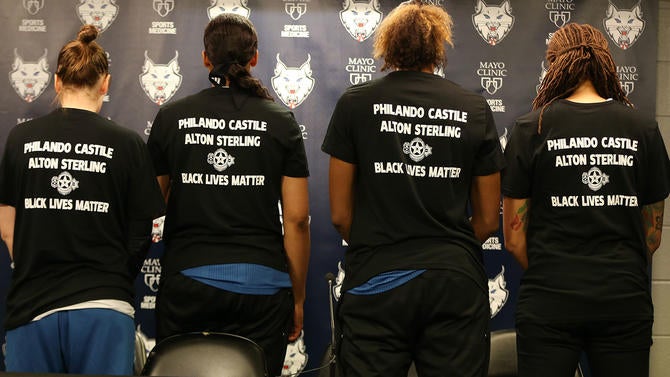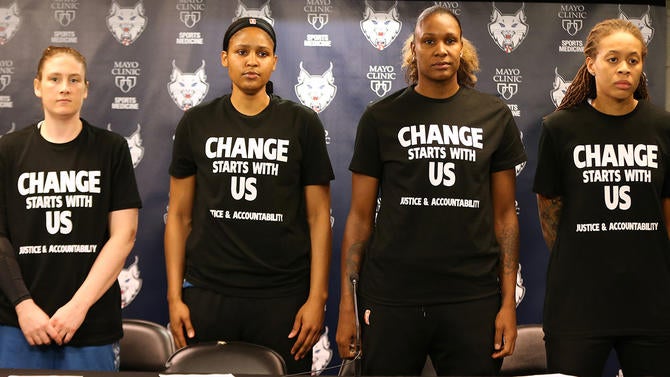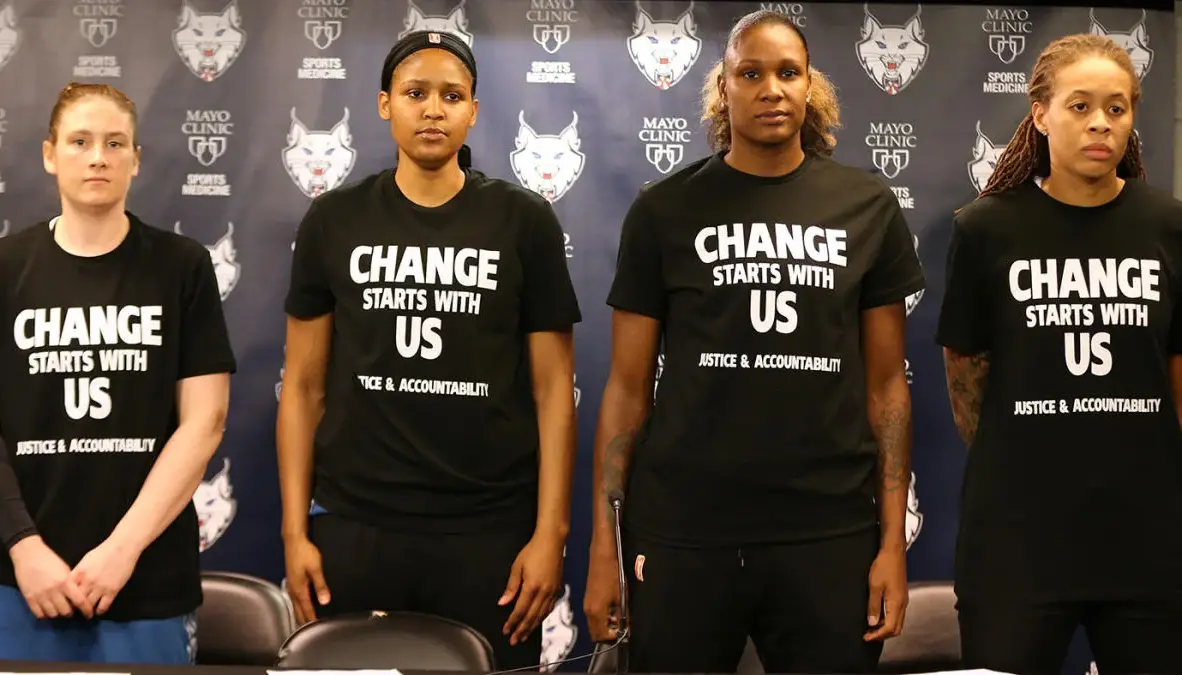A recent WNBA Lynx game in Minneapolis turned into an unexpected controversy when four off-duty Minneapolis Police Department officers abruptly left their security posts. The reason? The pre-game attire of the players—a statement they believed was both necessary and urgent—sparked frustration among the officers.
The Players’ Message: A Call for Change
The Lynx players wore black T-shirts that highlighted the names of two Black men, including Philando Castile, who had been tragically shot and killed by police during a traffic stop in Minnesota. Castile’s death had ignited conversations about systemic issues and police accountability. The shirts also paid homage to the five Dallas police officers killed in the line of duty, featuring a Dallas police badge on the back. To encapsulate their message, the shirts bore the words “Black Lives Matter,” symbolizing a call for social justice and change.
During a pre-game press conference, the players explained their decision to wear the shirts. Rebekkah Brunson, one of the team’s stars, shared a deeply personal experience involving police officers drawing their guns on her, emphasizing that such events were part of a larger, ongoing issue. She stated, “What is happening today is not new. Racial profiling is a problem. Senseless violence is a problem.”
The players expressed that their intention was to honor lives lost and advocate for meaningful reforms, addressing both the systemic challenges faced by Black communities and the sacrifices made by law enforcement.

Lynx players wore the names of recent shooting victims and the emblem of the Dallas Police Department. Getty Images
Officers’ Reaction: A Divisive Decision
The players’ message, however, didn’t sit well with four off-duty officers who were working security for the game. Finding the shirts offensive, they requested that team officials have the players remove them. When the Lynx declined to comply, the officers chose to walk off the job.
Lt. Bob Kroll, president of the Minneapolis Police Federation, spoke out against the players’ actions, describing their protest as “anti-police” and accusing them of perpetuating a “false narrative” about law enforcement misconduct. “They are professional athletes. Stick with playing ball,” Kroll remarked. “People go there to watch the basketball game.”

Minnesota Lynx players wore t-shirts supporting the Black Lives Matter movement. Getty Images
A Broader Perspective
The decision by the officers to leave their posts sparked debate within the Minneapolis Police Department and beyond. Police Chief Janee’ Harteau addressed the incident, acknowledging the officers’ frustrations but condemning their decision to abandon their duties. “Walking off the job and defaulting on their contractual obligation to provide a service to the Lynx does not conform to the expectations held by the public for the uniform these officers wear,” she said.
Minneapolis Mayor Betsy Hodges also weighed in, taking a strong stance against Kroll’s comments. She criticized his remarks as “jackass remarks” in a Facebook post, emphasizing that his views did not represent her or the city’s administration. “Kroll sure as hell doesn’t speak for me about the Lynx or about anything else,” Hodges declared.
The Balance Between Sports and Activism
This incident reignited the ongoing conversation about the intersection of sports and activism. While some critics, like Kroll, argue that athletes should focus on their profession, others believe that sports provide a powerful platform for raising awareness about social issues.
The Lynx players’ decision to speak out reflects a growing trend of athletes using their visibility to address societal challenges. It also highlights the tension that can arise when these messages challenge existing systems or beliefs.
A Lesson in Dialogue
The controversy surrounding the Lynx players’ shirts serves as a reminder of the complexities involved in addressing social issues. While the players sought to honor both victims of violence and law enforcement officers, the polarized reactions underscore the difficulty of navigating such sensitive topics.
As the nation continues to grapple with questions of justice, equality, and accountability, incidents like this one challenge us to consider how we can engage in constructive dialogue while respecting diverse perspectives.

